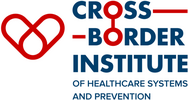Purpose of the article
Contamination of duodenoscopes is a significant concern due to the transmission of multidrug-resistant organisms (MDROs) among patients who undergo endoscopic retrograde cholangiopancreatography (ERCP), resulting in outbreaks worldwide. The aim of the study was to demonstrate the effectiveness of routine-based Next-generation sequencing (NGS) in uncovering the source of an outbreak, by detection a contaminated ERCP duodenoscope as the origin of Extended-spectrum β-lactamase (ESBL)-producing Citrobacter freundii and Klebsiella pneumoniae in patients.
Key findings
With the outbreak investigation we conducted, three probable cases and three proven cases who were colonised or infected by ESBL-producing Citrobacter freundii and Klebsiella pneumoniae were identified.Despite intensive consecutive cultures of the duodenoscope failing to detect any microorganisms, guiding NGS analysis and dismantling of the duodenoscope revealed that ESBL-producing K. pneumoniae was transmitted by the suspected duodenoscope.
Implications
Our study underscores the role of routine NGS-based surveillance and accompanying extensive epidemiological investigation in the detection and management of MDRO outbreaks. The results of this study call for a review of existing protocols and a consensus on improved sampling methods to enhance the detection and prevention of duodenoscope associated infections, while also emphasizing the necessity for future research to systematically assess the cost-effectiveness of routine NGS typing.
Would you like to know more?
You can find this study here: https://aricjournal.biomedcentral.com/articles/10.1186/s13756-024-01386-5
Cimen C, Bathoorn E, Loeve AJ, Fliss M, Berends MS, Nagengast WB, Hamprecht A, Voss A, Lokate M. Uncovering the spread of drug-resistant bacteria through next-generation sequencing based surveillance: transmission of extended-spectrum β-lactamase-producing Enterobacterales by a contaminated duodenoscope. Antimicrob Resist Infect Control. 2024 Mar 8;13(1):31. doi: 10.1186/s13756-024-01386-5



